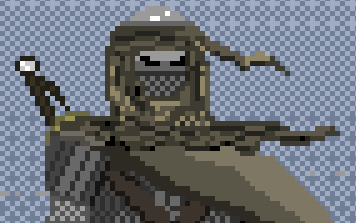Game Systems Notes
Game Systems
Game Pillars:
- Foundational concepts a game wants to explore; the essential components of a game
- Example of Specter Knight: the core pillars are about looking and feeling cool through dashing through levels. The core mechanics are about dash slashing and progressing through levels.
Game Loops:
- A chain of repeatable actions that form the flow of the players actions.
- Categories:
- Meta Game Loop: repeatable actions outside core gameplay, like long term progression and motivation systems, not related to the core gameplay loop.
- Core Game Loop: moment to moment, highly repeatable actions within the game like core mechanics and immediate decisions.
- Can be split into time systems:
- Second-to-second: constant game loops, i.e. sonic collecting coins, running, jumping, etc. what the player is constantly doing
- Minute-to-minute: less constant game loops that are happening at a frequent rate but not constantly, for instance sonic getting checkpoints or completing sections of a level.
- Hour-to-hour: usually meta game loops, for instance completing an entire level or chapter in a game like sonic. In red dead it would be something like hunting and making a new garment.
- In Specter Knight:
- Core Game loops: collecting gems, dashing and slashing and jumping through obstacles, attacking and killing enemies.
- Meta Game Loops: obtaining new curios and armour sets, accessing cutscenes and flashback levels.
Meta Game Systems:
- Systems that wrap themselves around the fire gameplay and usually affect it. For instance, skills progression trees, purchasable items, resource systems. If the fire game systems are the heart, the meta systems are the blood.
- The Significance:
- Long term goals: the meta game systems set a framework for long term goals. For instance in league of legends would be collecting and mastering new champions.
- Player Progress: progress is important to keeping a player engaged and excited. For instance, becoming stronger and collecting more weapons/armour in dark souls by progressing. You feel stronger and more skilled the more you get through the game.
- Game Depth: meta game systems add a layer of depth to core gameplay by giving players tools for systemic decision making, strategy, optimisation, and replayability.
- Player motivation: Motivation is fuelled by the right balance of clear goals, a sense of progress, and enough depth for the player to remain engaged. (In my opinion making fun core gameplay is the best way of keeping a player motivated).
- Documenting Systems (not just meta game systems):
- Brief overview: begin the documentation with a brief 2-4 sentence summary of the feature. Keep it concise, meaningful, and ensure that it’s clear how it supports the core pillars you set out in the beginning.
- User story/goals: usually follows the format of “As a player, I want [list what they’d want from this feature], so that [list why they’d ultimately want this feature].” In addition to a well constructed user story, outline the most important goals for the system.
- How does it work: One of the most important parts of the document. Outline in detail how the system works, what are the edge cases, include any needed diagrams. Keep it brief, try to use bullet points more than paragraphs.
- Put it in a table: Most systems have enough variable and stats to track that they require documentation in some sort of spreadsheet software. Mapping out systems in a table is crucial to simulating the long term player journey.
Personal note: meta game systems exist to not keep the gameplay boring. Like in sekiro, the core gameplay is excellent, but being able to get new combat arts and abilities helps break up the gameplay and add extra options so you do not have to approach every enemy the same way (even though you could).
- Item System:
- As you play you can get currency that can be used to upgrade the player character and add a sense of progression.
- Specific items can be used to optimize a build in certain games. For instance in dark souls, a dexterity build is complemented by a dex weapon like a scythe.
- Sometimes specific builds can be used to counter other specific builds, for instance a magic build may be optimal in countering a heavy strength build in dark souls due to superior range and movement.
- All these aspects exist because of a unique item system.
Idea for my game: mechanic to do with god/magic. If you spec into magic you lose god’s grace and certain enemies deal higher damage to you. If you sped into god you become weaker to certain magic attacks. Should make a spreadsheet on how it affects damage percentages and such.
Another mechanic idea is jump attacks are overhead swings, can be used to hook on to certain surfaces and kill certain enemies.
Writing user stories:
As a player
I want a variety of ways to hack and slash enemies
So that I can make my own interesting combos and flashy ways of progressing the level.
As a player
I want total control over my character’s movement in regards to climbing ability and directional control over jumping
So that I can approach a platforming challenge in a variety of ways.
Meta game loop is the option to either:
- Learn religious verses to improve your holy power
- Learn spells to improve your magic power
- Learn physical martial arts to create new skills
Can occur between levels

